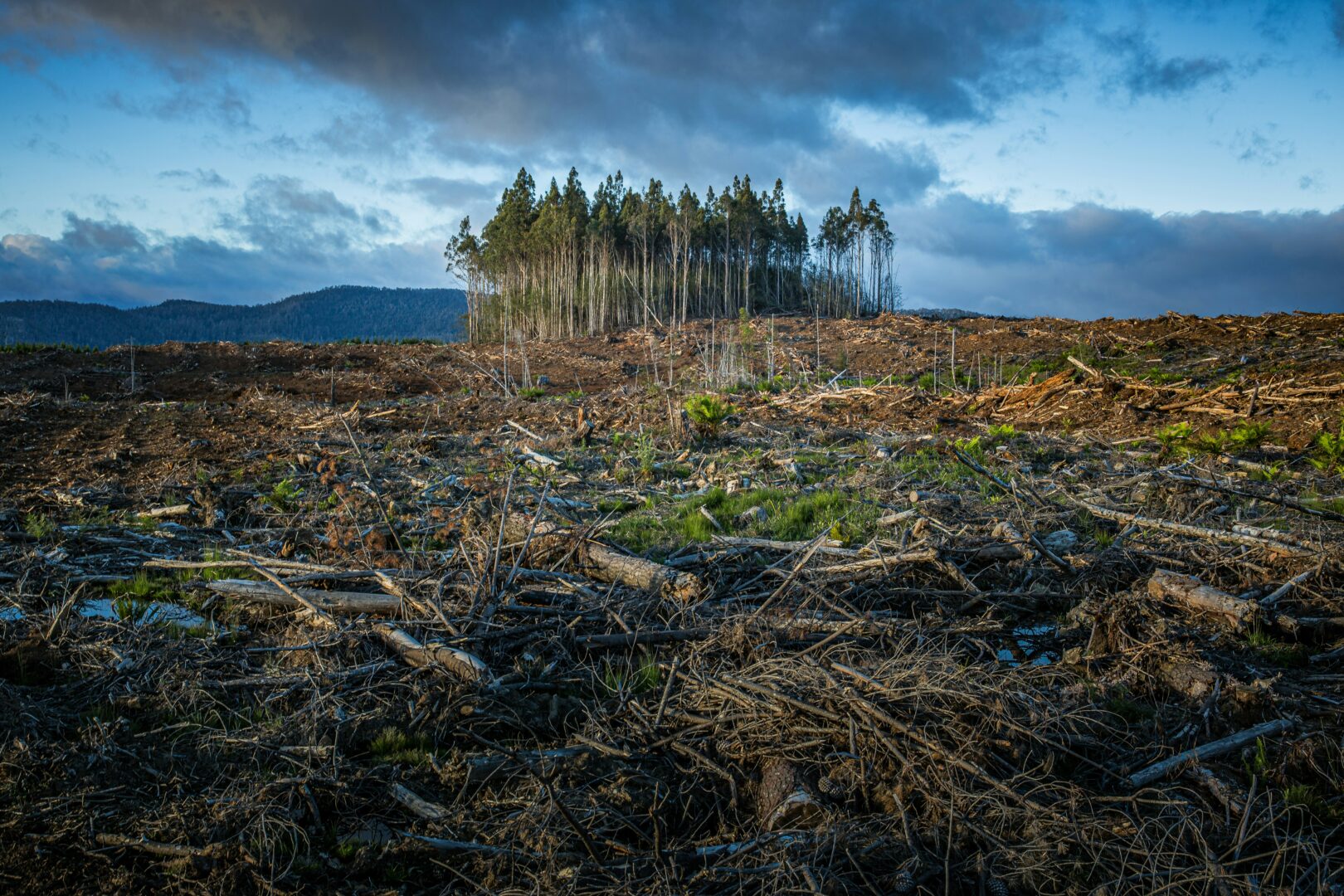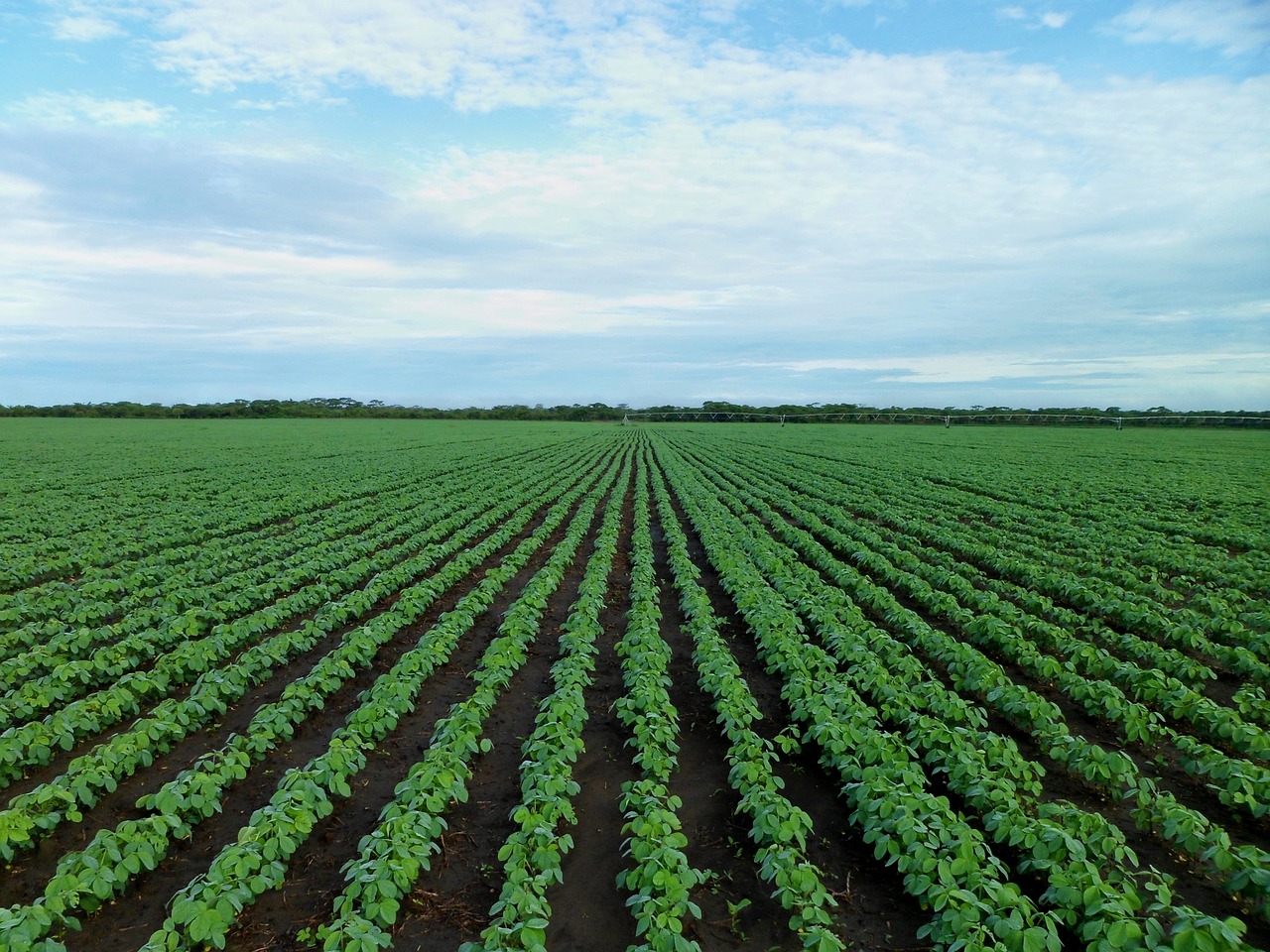
Brake – Germany’s largest feed port
Around 4 million tons of agricultural goods are handled annually at the port at the mouth of the Weser River.
Forty percent of Germany’s soy imports arrive here and are transported directly to the feed mills of the German animal industry.
The largest port and logistics company in Brake is J Müller. The company is Germany’s largest soy importer and thus profits from the neocolonial exploitation structures of the agricultural and animal industries.
The port of Brake is a hotspot for protests against the agricultural industry. The port has been blocked several times by agricultural reform organizations, e.g., to demonstrate against the Mercosur free trade agreement. Local initiatives are demonstrating here against the planned deepening of the Weser River. In October, we will also be active in Brake as part of the Disrupt Action Days.

Who actually benefits from feed imports?
The animal industry in the Global North has an insatiable appetite for feed, especially soy from South America. In South America, large areas of rainforest and Cerrado (wet savannah) are being destroyed to open up new areas for cultivation. This expansion is being enforced by force against the resistance of local small farmers and indigenous communities.
Large landowners profit from soy production and export. Agricultural corporations such as Bayer-Monsanto also profit from the sale of fertilizers, pesticides (glyphosate, etc.) and seeds for soy cultivation. Agricultural trading companies such as Cargill, ADM and J Müller ship soy from South America to European ports.
In Europe, the imported soy ends up in the feed mills of the German animal industry. Companies such as Agravis and MEGA Tierernährung use it to produce “concentrated feed” for use in factory farming. Meat companies such as Tönnies, Rothkötter, and Wiesenhof profit from the exploitative system as operators of slaughterhouses and through meat processing.
For more information, see the study:
https://www.klimareporter.de/images/dokumente/2024/05/Profits-on-Brz-soy-in-Germany_May20241.pdf
Immense land consumption due to feed cultivation
Around 80% of the world’s agricultural land is used for the production of animal products.
Around 33% of the world’s cultivated land is used for feed cultivation.
In Germany, almost 60% of agricultural land is used for feed.
However, due to its immense production and high consumption of animal products, Germany is dependent on imports of animal feed.
An additional 11.7 million hectares of agricultural land are needed abroad.
Various vegetables or legumes could be grown on all this land instead.
This would be a much more efficient and therefore fairer way of producing food.
That is why we say: Stop importing animal feed – climate justice instead of neocolonialism.
Sources
Ineffiziente Landnutzung: enormer Flächenverbrauch durch tierische Landwirtschaft
https://www.klimasofa.org/infothek/ernaehrung/wissen/flaechenverbrauch/
Brazilian Landless Movement: Movimento dos Trabalhadores Rurais Sem Terra (MST)
Of course, there are also people and groups in the countries affected by feed crop cultivation who are fighting against this system of exploitation and destruction.
One example of this is the Brazilian landless movement “Movimento dos Trabalhadores Rurais Sem Terra” (MST).
Since its founding in Brazil a good 40 years ago, the landless movement has been fighting for a fair distribution of land.
In many countries in Central and South America, land ownership is very unevenly distributed. Ten percent of landowners own about 75 percent of the land, most of them large landowners and international agricultural companies.
The MST landless movement occupies land and settles it. It also calls for fundamental agricultural reform.
The MST landless movement also fights against the use of pesticides.
In fact, the use of pesticides, which have long been banned in the EU due to health risks, is still widespread in Central and South America.
Sources
https://taz.de/Brasiliens-Landlosenbewegung-MST/!6026002/
https://www.boell.de/de/2024/01/11/pestizide-das-gift-das-durch-brasiliens-adern-fliesst
https://www.deutschlandfunkkultur.de/brasiliens-landbesetzer-40-jahre-kampf-um-gerechte-verteilung-dlf-kultur-b
